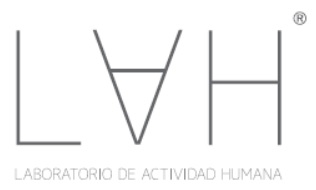Project DYRISES
Presentación I Jornada DYRISES
 The profound crisis that Europe, in general, and Spain in particular is suffering in the last years has accentuated inequalities and the risk of social exclusion for many groups (Youth, migrants, people with severe mental illness and women in general. These situations lead these groups to face genuine identity challenges that threaten not only their health and wellbeing, but also the integrity of their selves. When faced with these challenges people (individually and collectively) display different strategies and resources that enable them to cope with the challenges successfully.
The profound crisis that Europe, in general, and Spain in particular is suffering in the last years has accentuated inequalities and the risk of social exclusion for many groups (Youth, migrants, people with severe mental illness and women in general. These situations lead these groups to face genuine identity challenges that threaten not only their health and wellbeing, but also the integrity of their selves. When faced with these challenges people (individually and collectively) display different strategies and resources that enable them to cope with the challenges successfully.
From a theoretical perspective, our project is based, firstly, on a conception of the self as distributed, narrative and dialogical, and, secondly, on the adoption of a theoretical and methodological multilevel (individual, interactive and sociocultural) approach. Starting from this approach, the aim of this research project is to analyze the way in which people from groups is situations of inequality and risk of social exclusion face the identity challenges, identifying the most successful processes and studying the resources and strategies that have proved to be useful to face the challenges. For ths purpose, the project starts by detecting fur challenges for the self, defined based on the contexts in which they occur.
- Failure and dropout from the educational system. Students in situations of inequality and social exclusion will be studied. Instead of focusing on school failure, we are interested in, school success in contexts of difficulty.
- Migration, integration and citizenship. We will analyze how migrants confront the challenge of migration and integration in the new society.
- Identity and gender-based violence. In this case, we are interested in studying women who have been able to move forward and reconstruct themselves after violence.
- Severe mental disorder (SMD), stigma and recovery. Besides social and cognitive deficits, people with SMD need to confront social stigma to gain the control of their lives. The concept of recovery, developed in this area, represents a significant contribution to understanding these identity reconstruction processes
The participants will be women and men from two generations (youth and adults) who face the above challenges. The methodology to be employed is based on the integration of quantitative (questionnaires and scales) and qualitative (semi-structured interviews, focus-group) approaches and techniques. For the analysis of qualitative data, criteria and category systems elaborated and tested in previous studies by the members of the research team will be applied. These techniques include content and theme analyses, analysis of I-positions and voices.The latter are particularly suited to examine the processes of identity construction in cultural settings.
We expect that the data will allow us to characterize the processes of self (re)construction in relation with all challenges, including obstacles, strategies and resources. The emphasis will be put not only on the specific aspects and on the characteristics of identity reconstruction for each context, but also in the commonalities observed across challenges. This must enable us to develop a theoretical model of the processes of self-reconstruction in these settings, as well as to support future plans and programs of psycho-social intervention aimed at these groups.
The structure of the project is subdivided into four challenges:
